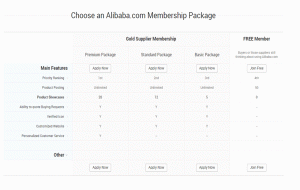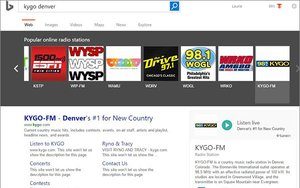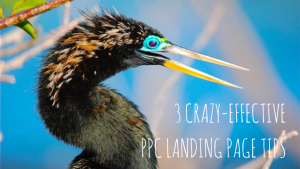— January 17, 2018

geralt / Pixabay
At a conference I attended, Smart Passive Income founder Pat Flynn told the audience, comprised of bloggers, finance business owners, and media, that you should “be everywhere.” You can see this implemented at Pat’s active blog, Twitter account, Facebook group, YouTube channel, Instagram account, and more around the web. But everyone doesn’t have the time to be everywhere, or the money to pay staff to do it for them. If you have to choose between a couple of somewheres, rather than everywhere, where should you start? It depends on your business, your goals, and what you can commit to doing well. Follow along with this guide to pick the best social media platform for your business.
When discussing social media platforms, there is no one bigger than Facebook. Founded in 2004, Facebook has more than 2 billion monthly active users and actually owns one of the other networks on this list, Instagram. What started as a way for college students to connect, share messages, and send online “pokes” has grown into a serious business, and a serious place of doing business.
Facebook allows businesses to create brand pages, which followers can “like” to indicate their interest in following. But organic reach among those who like Facebook pages is dismally low, as Facebook prefers businesses to pay to “boost,” or increase the reach of their posts to their full audience. Best practices are to send new updates to your page a couple of times per day with unique, interesting content that can include links to your products and website, and other curated content relevant to your target customers.
T-shirt brand Threadless is a great example of a high quality, engaging business Facebook page. It has earned the company over 900,000 likes.
Founded in 2006, Twitter boasts about 330 million active users. While it is a fraction of what Facebook has, 330 million is more people than live in the entire United States. Twitter users send short 240 character (formerly 120 character) Tweets, or messages, to their audience. Tweets tend to have a shorter lifespan than posts at some other social networks, so active users often post many times per day. For a business, a good starting point is around four to six unique messages per day.
Twitter is best for news oriented messages, focused on current events, though the network is known for sharing mundane things as well, like what people have for lunch. If you are on Twitter, be sure to monitor it constantly. This social media platform is popular for complaints to businesses, and users expect quick responses. Ignored messages on Twitter are tantamount to ignoring the customer. But if you can stick with positive messaging and respond to your customers quickly, it has a highly engaged user base that might be happy to buy your product or service.
Toilet paper brand Charmin does a great job bringing humor into its Twitter feed to delight its more than 80,000 followers.
Instagram is focused on images. While text descriptions and hashtags can accompany your photo, you can’t add links to your posts. Instead, you get one link in your bio for users to go wherever you hope to send them. Instagram users tend to be highly engaged, even more so than some other social media platforms. Instagram has 800 million active users, so jumping in to engage with this crowd is not a bad plan!
Founded in 2010, Facebook purchased Instagram in 2012 for $ 1 billion. Business across the spectrum find success engaging their target audience on Instagram. Like Facebook, paying helps boost the reach of your posts. With the right photos, Instagram is a good platform to promote a wide range of products and services. Posts that include funny or glamorous photos tend to perform well on this social network.
Small business divinityla sells bracelets online, and does an amazing job showing off its California based brand on its Instagram account.
YouTube
Owned by Google, the world’s number one search engine, YouTube search is the second biggest search engine in the world. YouTube has 1.5 billion monthly users who login to watch video content, which can be shared and commented on through the video’s page. If you can come up with high quality educational content, video performs very well online. As smartphones get more powerful and phone internet speeds get faster, more and more people hop into the YouTube app to watch videos both at home and on the go.
Don’t just upload advertisements for your business. People often go to YouTube for “how to” videos, edutainment, and sometimes just pure entertainment. Providing a mix of those will help you grow your audience. If you hit it just right, you might make the next viral business that brings your business to a much bigger spotlight. Successful videos generate millions of views, and that can easily translate into sales.
My favorite YouTube business channel comes from Blendtec, a blender company. “Will it blend, that’s the question.” The answers are always entertaining.
Founded in 2010, Pinterest has 175 million active monthly users. Pinterest allows users to add “pins” of images from around the web. These images can lead to clicks through to websites, videos, products, and more. It began primarily as a site for women to share things like recipes, home decor, and wedding planning ideas, but has grown to include many male friendly topics as well.
Travel guide company Lonely Planet is an example of a high quality account. If you can bring your brand to life through pictures, you should definitely include Pinterest in your repertoire. Due to the nature of how pins work, they are great for promoting blog posts and products that are just a click away.
Snapchat
Snapchat is a popular social network for younger users, so if your brand is focused on the under 30 crowd, you may find success here. Founded in 2011, Snapchat has about 180 million active users, who send “snaps,” or short picture or video messages, to their friends and fans. The trick is, these videos only last for one viewing. After you watch, it’s gone for good. However, you can also add to your “story,” which has a longer lifetime.
Snapchat doesn’t work for web users, it is focused entirely on its mobile app. But that doesn’t stop entertainment, automotive, lifestyle, and other brands from reaching out to its millions of users. A good example of a Snapchat business account is Red Bull, which promotes its energy drinks through fun, high adventure, and other events around the globe, and fills its feed with images and videos from these and other events.
Make sure to do a great job with every platform you choose
If you don’t have the energy to be everywhere and do a great job everywhere, pick just one or two social media platforms to start. Make sure you do a great job and stay active on every platform you choose. There is little less exciting on the web than stumbling on an old, stale business social media account. So choose the platform that’s best for your business goals and get started. You can always add more later on. But if you don’t try, you won’t have any access to the billions who login to their favorite social media platforms every month.
Digital & Social Articles on Business 2 Community
(24)









